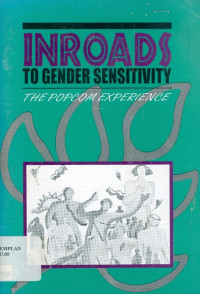
Text
Inroads to gender sensitivity: the popcom experience
This document hopes to impart the idea that a gender responsive and reproductive health-focused population policy and program is an essential element in achieving individual and national development within the context of sustainable development. It also meant to help other agencies involved in population and development efforts to begin rethinking their own programs. Finally, it seeks to inform and educate the reader on gender and reproductive health-related issues in population. The Philippine Commission on Population (POPCOM) sets and coordinates the country's population policy. POPCOM launched Gender I in early 1994 in the attempt to find out how aware and sensitive its board of commissioners, staff, and the provincial and city population officers were on gender and population issues. The assessment covered the respondents' gender relations at the workplace; gender, work, and family responsibilities; job satisfaction; their perceptions about gender-related issues in reproductive health; personal sex attitudes; and general perceptions on gender issues. The project also explored respondents' knowledge and perceptions on population growth and structure; population information generation and use; quality of life; reproductive health; law, ethics, and policy; and men's and women's roles. Having completed the institutional assessment, POPCOM has now implemented the Gender II project designed to strengthen the formulation, coordination, and implementation of gender-aware population and reproductive health policies and programs. Project activities include policy review and framework development, capability building through gender and reproductive health training and information management, and special research projects.
Availability
| KP.II-00175 | INT VII.47.05 DIN i | My Library | Available |
Detail Information
- Series Title
-
-
- Call Number
-
KP.II.FRA i
- Publisher
- Mandaluyong city : Philippine Commission on Population (POPCOM)., 1995
- Collation
-
81 hlm.; illus; 25 cm
- Language
-
English
- ISBN/ISSN
-
-
- Classification
-
KP.II.
- Content Type
-
-
- Media Type
-
-
- Carrier Type
-
-
- Edition
-
-
- Subject(s)
- Specific Detail Info
-
-
- Statement of Responsibility
-
-
Other version/related
No other version available
File Attachment
Comments
You must be logged in to post a comment
 Computer Science, Information & General Works
Computer Science, Information & General Works  Philosophy & Psychology
Philosophy & Psychology  Religion
Religion  Social Sciences
Social Sciences  Language
Language  Pure Science
Pure Science  Applied Sciences
Applied Sciences  Art & Recreation
Art & Recreation  Literature
Literature  History & Geography
History & Geography